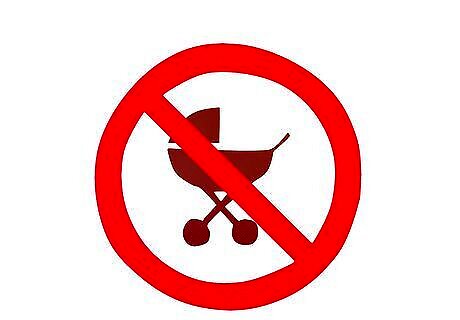
views

Judge your level of dissatisfaction. If you are completely satisfied with your life right now, you need not make changes. If not, determine how happy or unhappy you are with your life. Waking up may be as simple as realizing you don't want to "move up" from where you are because you like how you live and don't want the responsibilities and expenses of what "society" expects you to want after "moving up." An example would be relocating from a job and area you love to a higher paid job in a place you don't like because the opportunity opened up. Turn it down if that doesn't fit you! It won't be worth it.

Seek sources of your dissatisfaction. People do not become dissatisfied with their lives randomly or for no reason. Your dissatisfaction is not random; there are causes. You can come to understand the causes underlying your unhappiness. Take careful stock of what it is about other people's lives that makes you jealous, and what it is in other people's lives you're glad not to have.

Make personal choices that move you away from dissatisfaction. Find out what works for you, and make it a part of your life. With careful change, you can eliminate the sources of your unhappiness from your life and live your dream, rather than someone else's.

Visit a place in another way. Look at several possibilities and compare.

Look honestly at yourself and the physical world of nature. What climate would make you happiest and healthiest? Do you have asthma and breathe easier in the desert? Or does an arid climate give you asthma with a dust allergy, and you breathe easiest living next to the ocean? Would you be miserable if you never had a white Christmas and miss the snow, or are you happiest in a place that never has winter as you remember where you grew up? Do hot summers ruin your life or give you delight? If you could choose, what would your immediate physical environment be like year round? Becoming aware of how much the climate affects your health and happiness - it is different for every person - can vastly improve the quality of your life if you change nothing else.

Look at the culture where you want to live. Think about the people and community. Do you long for a city with reliable mass transportation and bike lanes where you don't need a car? Or do you want to move farther out into the country where you could own a horse? Suburban living is similar across the USA, but regions vary immensely in that cities have character. Consider the places where you wish you could live but seem impossible to do so. They may be more possible than you think because the people who have lived there have already found solutions to problems that make living there seem impossible - such as high rents in San Francisco or New York. Local customs, attitudes, habits and social patterns are as big a part of how you choose to live as the physical environment is. There is no cookie cutter American Dream no matter how it looks on television.

Look at what you want to do for a living. You probably spend the lion's share of your waking time doing it. When that fits who you are and what you enjoy doing, life becomes a lot more harmonious and less stressful. One important factor left out in the American Dream is whether your work means something to you. When you do a good job, does it feel as if you've accomplished something that needed doing and was important to others? Or does your job involve ethical and moral choices that turn your stomach every time you have to make them? It makes a world of difference to care about your work and do something that matters rather than do something you hate because you need the money for basic survival. It's the difference between having a life and being trapped. If the job you love doesn't pay as much money as the job you hate, consider scaling back your material expectations. Eliminate expenses that you don't need nor enjoy. If you don't need it and it doesn't give you pleasure, why are you bothering to buy it? Just by doing so can trim an enormous chunk of 'fat' off your budget. It can also let you cut your hours even if your job's satisfying because you like having time for family and other activities, such as social involvement.

Pay attention to reality: the taste of food, the pleasure of dancing or walking or playing sports, the experiences that thrill you or fill you with satisfaction when you accomplish goals. You're the individual you are. Some things other people love are going to be boring, unpleasant or pointless to you. Take these things for what they are, choose according to your own feelings. Living an authentic life makes it easier to discover your personal Dream instead of chasing the generic American Dream. Others may even follow your discoveries because your happiness in them is genuine.

Stop competing with others. Your home isn't lousy or great in comparison with your neighbor's or someone you know from work. Your home is great if it's comfortable for you, things are the way you like them and you enjoy it every time you walk in. Everyone's goals are different. Most people become very good at the things they enjoy most. You'll never be better than everybody at everything. Stuffing money into the gap by paying professionals to have similar results leads to jealousy and covert disrespect, not real admiration. Spending your energy on your own passions and freely helping beginners get started leads to real admiration and respect, something all human beings thrive on. Do not use technology to note down your goals. Use pen and paper to write them. When you use your fingers to write, you use your human capacity. It is more powerful than anything. It creates a vibration inside you. Set three short-term goals for six months or the quarter, and write them down. Read them every day. Be specific, and then as you conquer them, celebrate it.

Consider not having children just yet. It's more fair to kids if you finish sorting out your priorities first, and it enables you to experiment. Consider making a satisfying contribution to your community or world, which you might not have time for if you were raising a family.

^If you do have children, prioritize their needs. Ask them what they want. Talk to them as members of the family when they're old enough to talk. Look honestly at how your choices affect them. The answers may not always fall on the side of The American Dream. If your children are threatened or bullied, they may be more than willing to pull up stakes and try a new lifestyle. Don't underestimate the levels of pain and terror a bullied child faces. You may be making changes on their behalf that can materially improve their lives. Choices that give you more time to bond with them and deepen your relationship may be healthier for them. Growing your own food is something they can participate in and enjoy, it's one of the biggest motivators for children to eat vegetables. If they're not bullied, relocating breaks all their social ties outside the family and that is traumatic, it's real harm. Part of the so called American Dream is "moving up" every few years - the break from it might be to stay where you are and let the kids grow up with their friends instead of losing everyone they know outside the family periodically. Be aware of how your choices impact them. Discuss with them how your choices impact them and get their opinion. Life will be a lot smoother and more harmonious if they're part of the change and actively working on making your new life good. It shouldn't have to be said, but it does. Consider your spouse or domestic partner in major life changes. Discuss reasonably and be willing to compromise. Listen to your partner's reasons for agreeing or disagreeing with respect and accept these reasons as valid. Divorce and breaking up are bitter, painful processes, often expensive as well. Look for alternatives that will satisfy both of you. If a break up is necessary because you grew apart, don't get vicious and try to separate with as little harm as possible. If you're single, the first point about putting off the decision to have kids applies to the decision to settle down. It's much better to decide how you want to live and build a good life that fits who you are first than to suddenly change direction when a partner's expecting things to go on exactly as they have been while you were getting together. Trying a new lifestyle because you met someone wonderful who's invited you to share it is something else - if you do, be aware the relationship may not last but the new life may have some benefits of its own. Make these personal decisions consciously for yourself. Don't just follow the 'script' of other people's expectations. That's how you wound up in the job you hated or the neighborhood you can't stand or the lifestyle that just doesn't fit.

Examine your possessions for hidden costs or choice-restrictions. Except for the tools with which you make a living, you may find selling some unused items to pay off your debts frees your time and space.

Brainstorm what your life could be like if you could do more of what you like and less of what you don't. Brainstorm responsible ways to take short breaks where you try that life on for size. 'Brainstorm' ways to more quickly meet your basic responsibilities so as to make these breaks longer and longer.

Try the experiment of keeping a record of how you spend your money. After a month or so, look at each item on your list and give it a quick "thumbs-up" mark if it was worth it according to your personal values, or a quick "thumbs-down mark" if it cost too much according to your personal values.

Try keeping a record of how you spend your time. After two weeks or so, give a quick "thumbs-up" mark to each worthy item according to your personal values, or a quick "thumbs-down mark" if it cost too much time according to your personal values. Make a small reminder card of the notable thumbs-ups and thumbs-downs, clip and paste it to your calendar or schedule, and glance at it when you make your schedule, or agree to do something, or plan, and once a day at a random time.



















Comments
0 comment